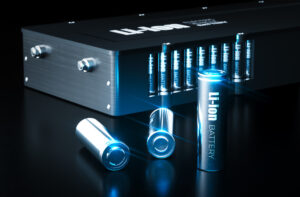
New Hampshire bill restricts disposal of lithium-ion batteries
By onAnnouncements | Legal | Technology
The New Hampshire legislature passed a bill earlier this month that prohibits the disposal of lithium-ion batteries in solid waste landfill facilities, composting facilities, or incinerators.
HB1386 was introduced in the House Dec. 6. It moved to the Senate March 13 and was sent to the governor for signing June 13.
State law currently makes it illegal to dispose of wet-cell batteries at landfills, compositing, and incinerators. The law also specifically restricts the disposal of automobile batteries at these locations.
The bill would add lithium-ion batteries, typically found in laptops, phones, and power tools to the current law.
It also will require facilities to implement mechanisms to avoid disposal of the batteries. At the minimum, this will include, informational signs and written notification to facility customers.
Municipalities would be required to create educational materials on the safe handling of wet-cell batteries, lithium-ion batteries, and electronic devices. The entities should also provide recycling options for the batteries, if possible, the bill says.
According to documents attached to the bill, the New Hampshire Municipal Association said it is likely the majority of solid waste facility fires are started by lithium-ion batteries.
“Costs associated with those fires include damage to waste disposal equipment, harm to persons and property, and wear and destruction of municipal property,” the document says. “Additionally, fire departments incur costs responding to fires including wear on turnout gear and equipment and additional costs associated with overtime and other pay.”
First responders also could be exposed to toxic chemicals, the documents say.
Municipalities could incur costs from replacing turnout gear more frequently and have additional costs for the medical treatment of firefighters.
“This bill would likely reduce such expenditures if the ban on disposal of lithium-ion batteries is effective,” the document says. “It could reduce overall expenditures, despite any additional costs associated with signage, education of the public, and enforcement. The Association does not expect additional local revenue as a consequence of this legislation.”
A report created by the United Nations Institute for Training and Research, International Telecommunications Union, and Fondation Carmignac recently found that 62 tons of e-waste were produced globally in 2022, with only 22% recycled correctly.
“Meanwhile, less than one quarter (22.3%) of the year’s e-waste mass was documented as having been properly collected and recycled in 2022, leaving $62 billion worth of recoverable natural resources unaccounted for and increasing pollution risks to communities worldwide,” the report says.
IMAGES
Photo courtesy of Petmal/iStock.
